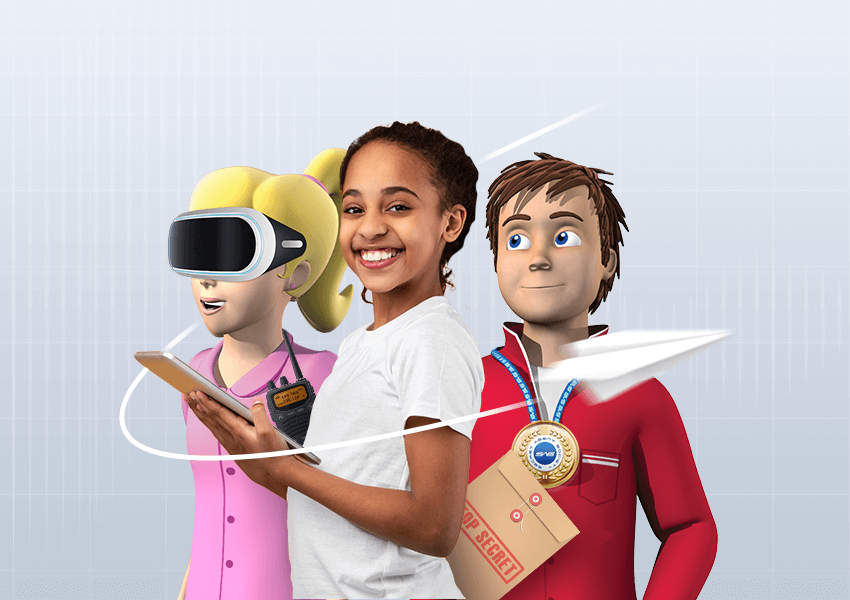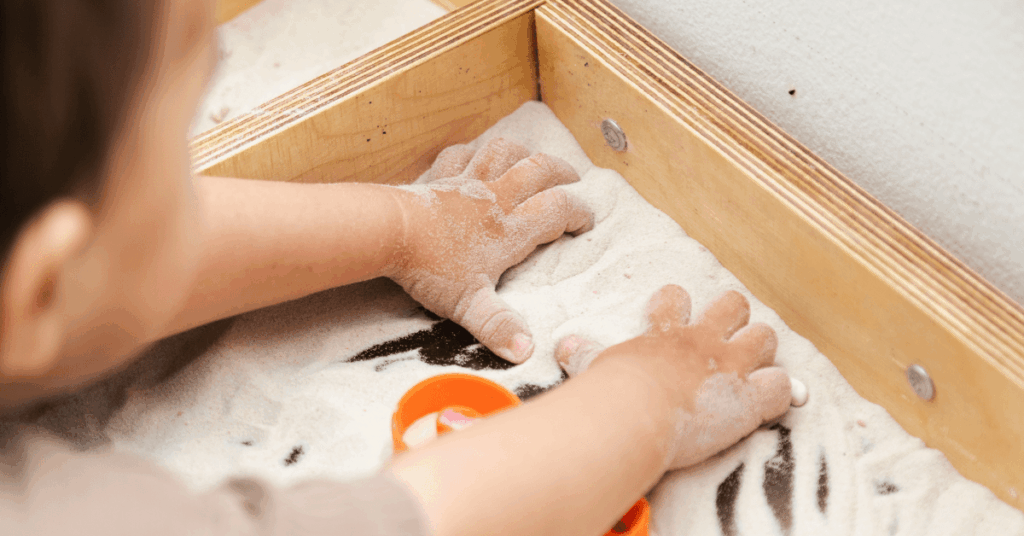Childhood stuttering: symptoms, impact and best stuttering treatment
Stuttering is a speech disorder that makes it difficult for kids to speak easily.
With childhood stuttering, the rhythm of speech is interrupted by a variety of different behaviours.
Stuttering can be frustrating, particularly for kids – they know exactly what they want to say, but are unable to speak freely and fluently due to involuntary stuttering behaviours.
While difficulties speaking fluently is common and perfectly normal for young children learning to speak, stuttering that continues in the longer term could indicate an issue with speech and language development.
Most children will outgrow stuttering, but some may need a little bit of extra help – and that’s okay!

Signs and symptoms of stuttering
Stuttering may start gradually or suddenly, and the type and severity of stuttering may change over time – it can even disappear for a period before returning.
There are three main types of stuttering, although this is by no means exhaustive. Childhood stuttering can present itself in numerous ways.
Repetitions
This can either be in repetitions of sounds (‘c-c-can I play?’), words or certain syllables (‘can-can-can I play?’) or phrases (‘can I-can I-can I play?’).
Prolongations
This is where particular sounds or words are prolonged or stretched out – for example, ‘Caaaaaaaaaan I play?’
Blocks
This is essentially where your child is ‘stuck’ and no sound comes out.
They may find it difficult to start a word or sentence.
Other stuttering symptoms
- Brief silences or pauses within words e.g. ‘Can I pla-ay?’
- Extra words or excessive filler words, such as ‘um’
- Non-verbal behaviours, such as grimacing, blinking, head jerks, or clenched fists. You may also notice tension or movement in the face or body at the difficulty of saying certain words or phrases
- Anxiety around talking
Stuttering symptoms tend to get worse if your child is stressed, tired, or even excited, and can also increase in severity when in social situations – particularly if there is perceived pressure. Make sure to pay attention during these times.
What causes stuttering?

Put simply, stuttering occurs because there is a problem with the brain processes responsible for controlling speech.
It does not mean your child lacks intelligence or is suffering from any emotional issues – there is simply a slight ‘glitch’ in the connection between the brain and speech production.
Stuttering will often run in families, which suggests that genetics are involved in some way, but the cause for stuttering is still unknown.
Who is more at risk of developing a stutter?
Statistics show that males are more likely to stutter than females.
But there can be several other factors that come into play.
- Genetics/family history i.e. family members or relatives who have a stutter or stuttered in early childhood
- Delayed childhood development. Kids who are experiencing developmental delays or also have other speech problems may also have developmental stuttering
- High-stress environments. If your child is undergoing stress or pressure at home, stuttering can become worse
What is the impact of a stutter?
The biggest impact childhood stuttering can have on your child is mostly in regards to psychological factors and social situations. Stuttering can cause:
- Issues with effectively communicating with others, including peers and teachers
- Anxiety around speaking and avoiding certain situations that make require them to speak
- Less participation in school or social settings; a potential decline in school performance as a result
- Bullying or teasing
- Low-self esteem
Fortunately, there are stuttering treatments available to help your child gain more freedom and confidence with their speech.
When to seek help for stuttering

Childhood stuttering is common in the preschool years between the ages of 2 and 5 when kids are learning to speak, although it can affect people of all ages.
Generally, though, it begins in early childhood.
Up to 1 in 12 three-year-olds stutter in Australia – almost 8.5% – so it’s important to know you are not alone.
Many young children who stutter will recover naturally, but there is currently no way to determine which children will experience natural recovery or how long individual kids may take to recover.
We suggest seeing a doctor or speech pathologist if you notice the following:
- Stuttering lasts for more than six months
- Stuttering becomes more frequent over time as your child ages
- Stuttering occurs with the accompaniment of the above non-verbal symptoms, such as muscle tightening or a visible struggle to speak
- Your child is beginning to be affected in the ways they communicate at school, work, or socially
- Your child is anxious or stressed over their stuttering, and avoids certain situations where they may need to talk more. You may notice them out of breath or clearly nervous when speaking
Treatment for stuttering is most effective in early childhood, so it’s better to address childhood stuttering sooner rather than later.
If you believe stuttering is becoming an issue for your child, we recommend you find a speech pathologist to help your child express themselves freely and without hindrance.
They can also help with further assessment and individualised advice on the best treatment for your child.
Stuttering treatment
In preschool children, treatment for stuttering will depend on how long your child has been stuttering and the impact is having on their communication and social interaction.
Your speech pathologist may recommend starting treatment immediately, or they may suggest monitoring their stuttering for a period of time.
While monitoring stuttering, your speech pathologist may recommend strategies such as giving your child time to talk and not finishing sentences for them.
Evidence indicates that the best treatment for stuttering in young children is the Lidcombe Program.
Research also supports the use of this approach in school-aged children.
In this treatment, parents are trained by a speech pathologist to deliver therapy in the child’s natural environment, gently encouraging children to speak without stuttering.
It is important that this therapy is completed under the guidance of a trained speech pathologist.
For school-age children or adolescents, the goal of treatment for stuttering focuses on reducing the impact of stuttering on everyday life.
It will generally involve speech restructuring techniques to improve the fluency of speech, as well as strategies to manage anxiety around speaking.
As such, stuttering treatment can sometimes involve seeing a psychologist as well as a speech pathologist – but this will vary case by case.
What can you do as a parent or caregiver?

The most important thing you can do for your child is to ensure they have a safe environment to develop their speech and improve their stuttering.
Here are a few other things you can do to help your child or prevent your child from developing a stutter:
- Provide a stress-free environment where your child can feel safe and secure
- Don’t interrupt your child, even if they’re experiencing some difficulties in expressing themselves. Be patient and allow them to take their time
- Set aside some time to talk to your child every day and make sure you pay attention to them when they’re speaking
- Encourage your child to talk about topics they find fun and interesting, and aren’t too difficult
- Don’t speak too quickly with your child. Slowing down your own speech can encourage your child to also slow down
- Don’t speak for your child – give them time to get their words out
- Don’t respond negatively to your child’s stuttering
- Talk openly about stuttering. Stuttering is nothing to be ashamed or embarrassed about it, and open communication around the subject will help them feel comfortable with it
- Discuss your child’s stuttering with their teachers and ensure the school environment is a place of encouragement and acceptance
Keeping these points in mind will help your child practice their speech and gain confidence in a safe environment.
What next?
If your child is stuttering and you have concerns, we encourage you to look into speech therapy for kids.
At Early Start Australia, we have a fantastic team of speech and language pathologists to help your child with their speech and communication with early intervention strategies.
Find a clinic near you to get started today.









